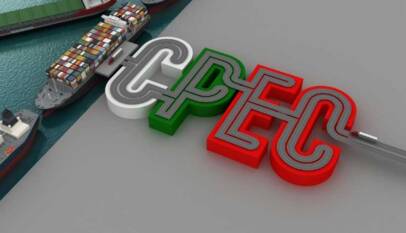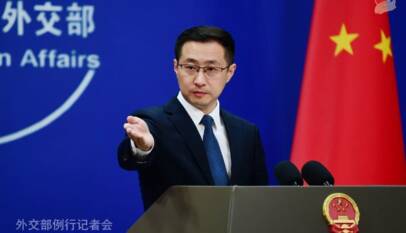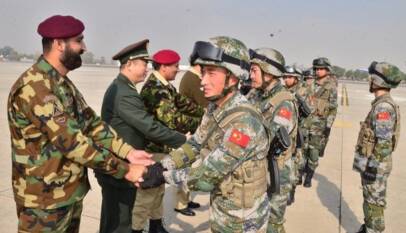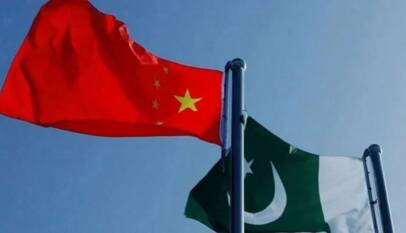The importance of CPEC
The China-Pakistan Economic Corridor (CPEC) is more than just a $47 billion dollar investment. It will not only improve Pakistan’s current situation, but promises to improve the lives of nearly three billion people across the region as part of the larger Chinese vision of a grand Silk Road Economic Belt, which stretches across Asia through the Middle East and connects to Europe.
Speaking at the Institute of Policy Reforms (IPR) on April 19th, renowned British scholar Anatol Lieven said that CPEC is an economic breakthrough for Pakistan, and if it works out can generate as much as three or four times the initial $47 billion investment.There is no doubt that continued economic development is the key to a strong Pakistan. The corridor will help alleviate poverty in Pakistan by creating new business and job opportunities. Pundits in the media have often referred to Pakistan as a failing state, the fact that China is willing to invest so heavily in Pakistan proves them wrong.
The Chinese see the endless possibilities that Pakistan has to offer and their partnership will help Pakistan revive its once strong economy, bringing back the foreign investors, who fled the country following the 2008 elections.
China and Pakistan have a very strong friendship, and this Chinese initiative will further strengthen that relationship, by making China a stakeholder in Pakistan’s future. This will ease some of Pakistan’s security concerns in regards to both its neighbors in the East and West. Pakistan will become the most strategically important country in the region because it will improve trade and economic connectivity between Asia, the Middle East and Europe. The energy projects announced, as part of the CPEC agreement will end Pakistan’s energy crisis once and for all.
The Chinese have already helped establish the Quaid-e-Azam Solar Park in Bahawalpur, which by the end of the year is expected to churn out 1,000 MW of much needed electricity. The alternative energy and nuclear energy projects proposed will generate approximately 16,400 MW of power, not just ending the energy shortage in Pakistan, but will also help us combat pollution by cutting down on carbon emissions by as much as one and a half billion tons per annum.
Tourism is another Pakistani industry that will see an immense boost as a result of this corridor. Pakistan is home to the world’s second highest peak at K2, and also boasts another five peaks above 8,000 meters, in addition to the more than 50 other mountains over 7,000 meters. Mountaineers from around the globe will flock to Pakistan’s Gilgit-Baltistan region as soon as CPEC is operational.
As Ambassador Ashraf Jehangir Qazi said at the IPR conference, it is now up to Pakistan to ensure that CPEC becomes a reality. The Ambassador was alluding to the number of obstacles that have already begun to show their ugly heads because of domestic and regional politics. These obstacles include the current security situation in the country, corruption, lack of national unity, and the ingress of foreign agents hell bent on ensuring that the CPEC initiative and development of Gwadar port fail.
The military has played an important role in alleviating some of the Chinese concerns and removing some of the obstacles, especially in regards to guaranteeing strong security. General Raheel Sharif raised a Special Security Division, commanded by a serving two-star General to make certain that the best possible security is provided along the CPEC route, and protection for the foreigners working on the project. The Pakistan Army under General Raheel’s leadership has also made tremendous progress in combating terrorism. It is now up to the political leadership in the country to make sure that there is a national consensus on CPEC.
There are some political entities in Pakistan that have challenged the corridor’s route, slowing progress on the development of road and rail networks. Others have been supporting terrorists in Balochistan on the behest of their foreign masters.
There is also strong evidence that our neighbors to the East have been funding terrorist activities in parts of Sindh and Balochistan in an effort to halt work on the corridor. The current government needs to take charge of the situation and address the non-security related obstacles that threaten the China-Pakistan Economic Corridor. I applaud Prime Minister Nawaz Sharif for securing the Chinese investment; but the job is only half done. It is now this government’s responsibility to make sure that they do everything in their power to make CPEC a reality.
If the Prime Minister does not get his house in order, and fails to deliver on his promises to the Chinese on time, then he will not only jeopardize our relationship with them, he will also destroy Pakistan’s reputation for generations to come, ruining the future of the country. The China-Pakistan Economic Corridor is not just a $47 billion Chinese investment; it is the key to Pakistan’s survival, therefore all political parties, and every individual Pakistani should support the current government in its efforts to make this project a reality.
CPEC’s Success Story: $25 Billion Invested Across 38 Completed Projects
ISLAMABAD: A total of 38 projects worth over $25 billion have been completed and 23 develo…












